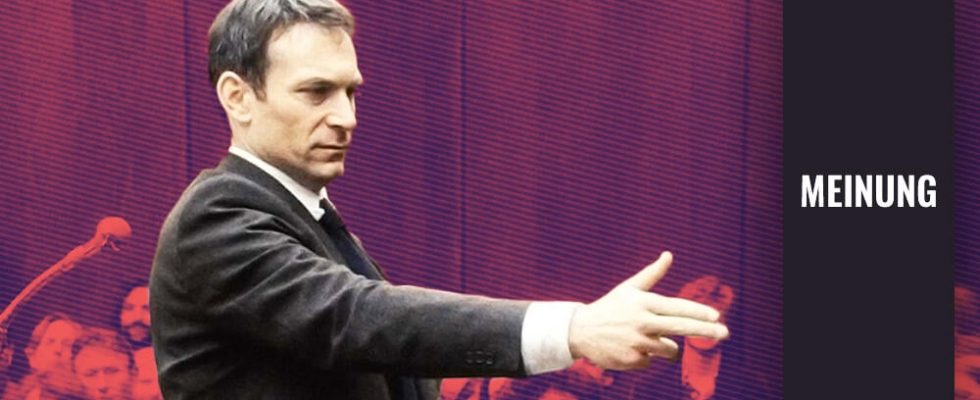In the last three years (at least) two high-profile films about left-wing activists under the wheels of a biased judiciary have premiered. One had a $35 million budget, stars like Sacha Baron Cohen and Joseph Gordon-Levitt, the concentrated word power of Oscar winner Aaron Sorkin (The Social Network) and the streaming platform Netflix.
The other is good.
Like The Trial of the Chicago 7, the French courtroom thriller The Goldman Case is based on a true story whose legal battle is as cinematic as if a highly paid Hollywood writer had written the scenario under the influence of a white powder. Unlike the Netflix spectacle, however, The Goldman Case is a clever recreation of real eventswhich builds up an enormous amount of tension in its 116 minutes.
The hero of the thriller confesses to all crimes – except one
Pierre Goldman may not be a common name in Germany, but things are different in France. The son of Polish Jews belongs to the French generation of 1968 and worked in Latin American guerrilla groups. In France he kept his head above water with raids. In 1970 he was arrested, among other things for the murder of two pharmacists. He admitted to the other crimes, but maintained his innocence in this one. Goldman was imprisoned, gained a reputation as a writer, and the case was reopened.
This is where the film starts. Did Goldman (Arieh Worthalter) really shoot the women in cold blood? Or did the police want to use all means possible to find a culprit, a left-wing, Jewish culprit at that?
Ad Vitam
The Goldman Case
Apart from a handful of scenes, The Goldman Case is set in the wood-panelled courtroom, staged with stuffy shots of witnesses, lawyers and the accused. So we sit right in the middle, under the scowl of Pierre Goldman. Equipped with principles of steel and a blinding honesty about his own mistakes, he refuses statements that could exonerate him – because he is not a “rat” who betrays others. He takes on the accusers, stabs his lawyers in the back. At the same time, the sabotage of his defense is an expression of a strength of character that brought him numerous admirers.
What makes The Goldman Case so much better than Netflix’s The Trial of the Chicago 7
There are no flashbacks to his youth or his crimes, just what happened in court. From the stories of father, partner, companions and finally witnesses who want to have seen him at the scene of the crime, a world emerges far beyond the borders of the hall, in which a young man finds his wife shot dead on the floor of the pharmacy and a shaken woman Father distraught over his son being a criminal.
Using words and faces, director Cédric Kahn and co-writer Nathalie Hertzberg paint a portrait that embraces the contradictions of the man who wants to showcase the justice system in which he believes it works. This The sparse film, rich in dialogue and never boring, draws its tension from the systematic deconstruction of witness statementsthe unveiling of inconsistencies, lies and of course eloquent pleadings, as a really good court film should offer them.
Ad Vitam
The Goldman Case
In doing so, he entertains and enlightens his audience far more effectively than a budget in the millions, an armada of extras in historically accurate sets, and even a screenplay by Aaron Sorkin. Sorkin, a court master since A Matter of Honour, like so many other Hollywood films loses himself in search of inflated verbiage and treats his heroes’ political beliefs with kid gloves. The Goldman Case meets the radical nature of its hero at eye level and eludes artificial dramatizations. Reality is exciting enough.
The Goldman Case doesn’t have a German release date yet (but definitely deserves one).
